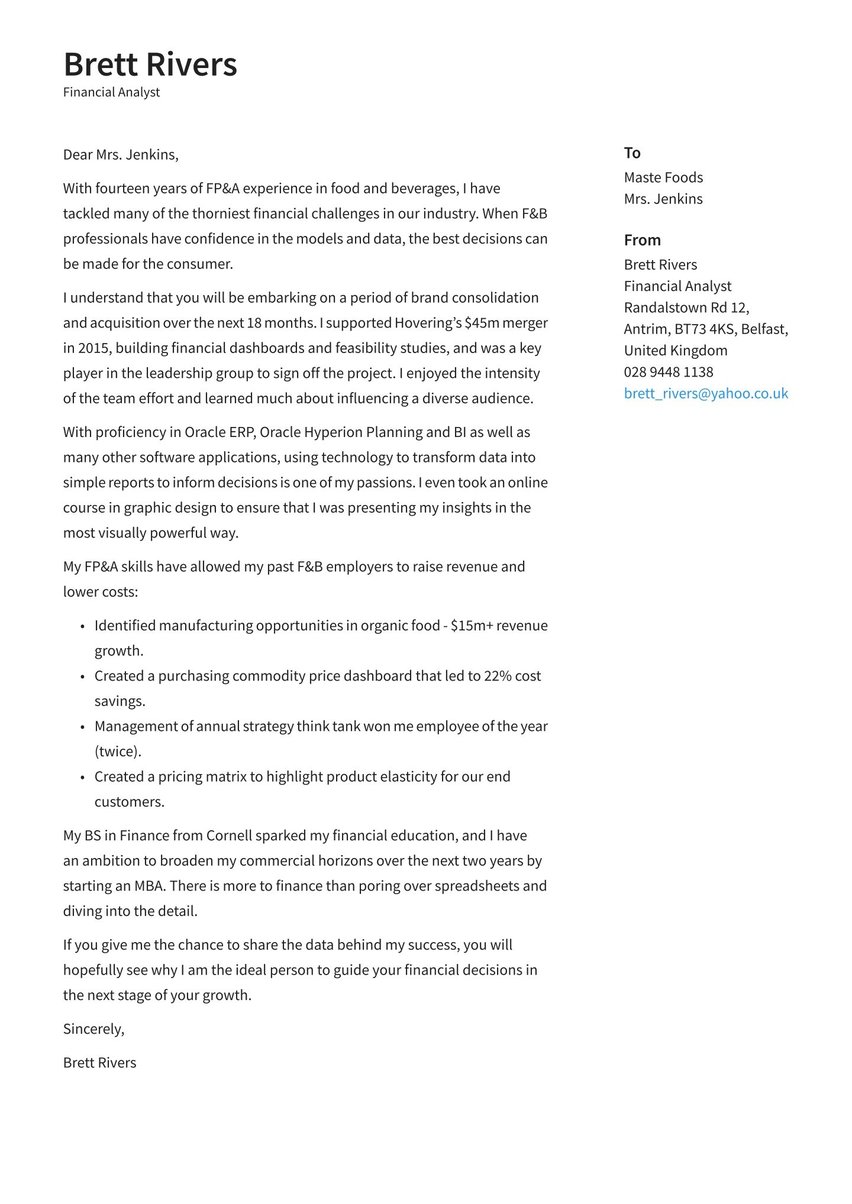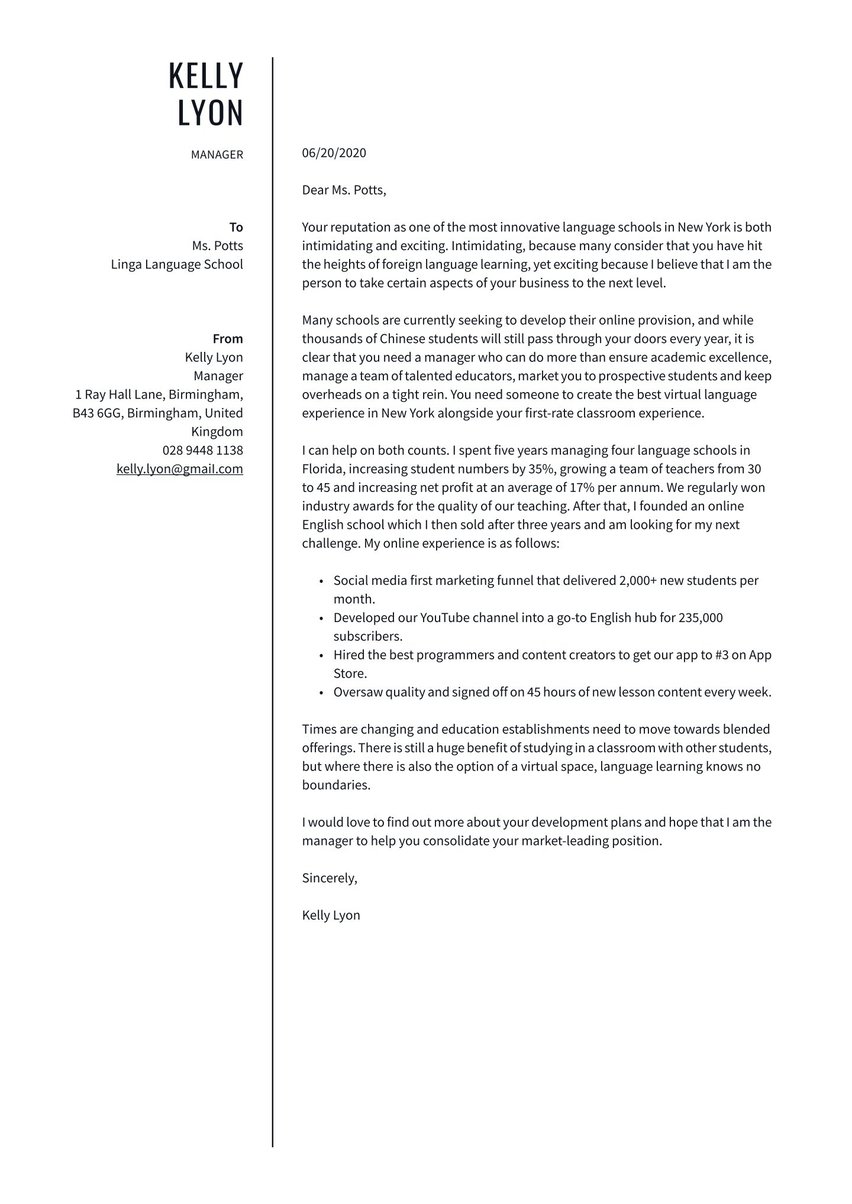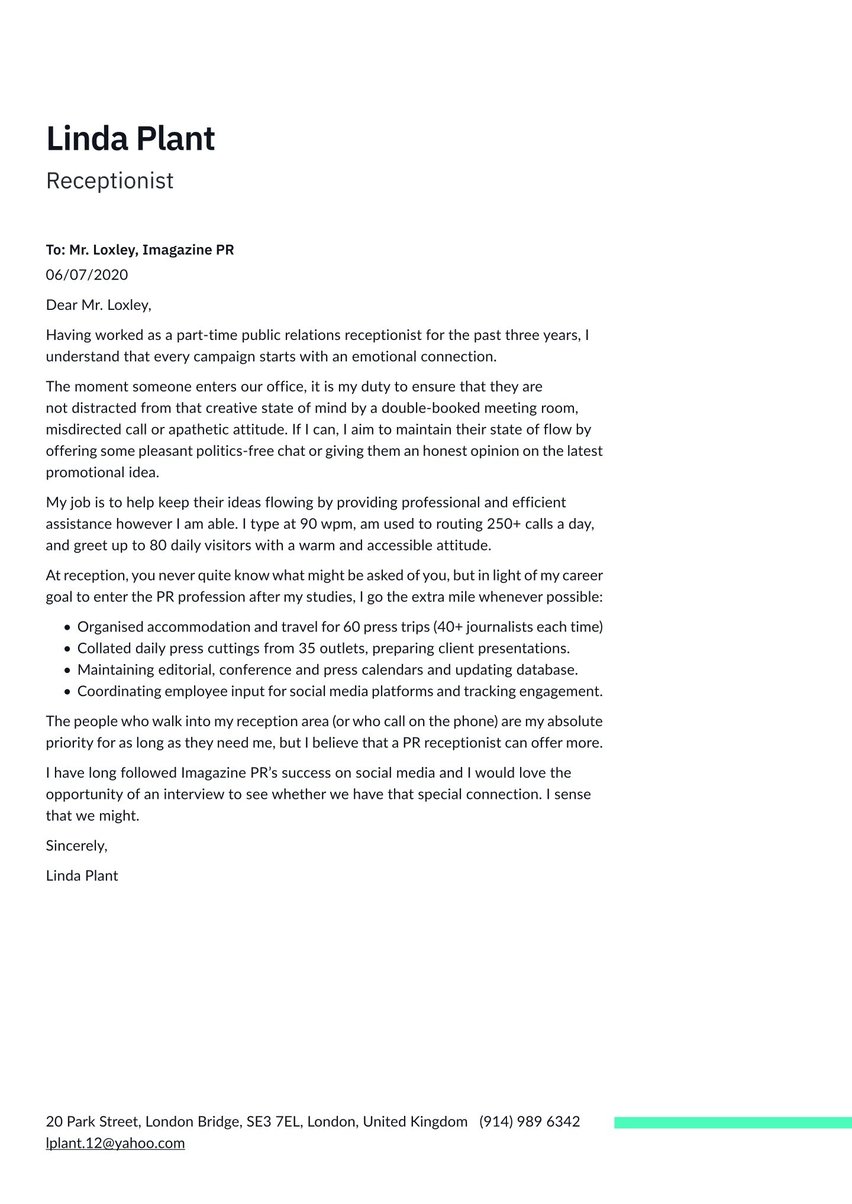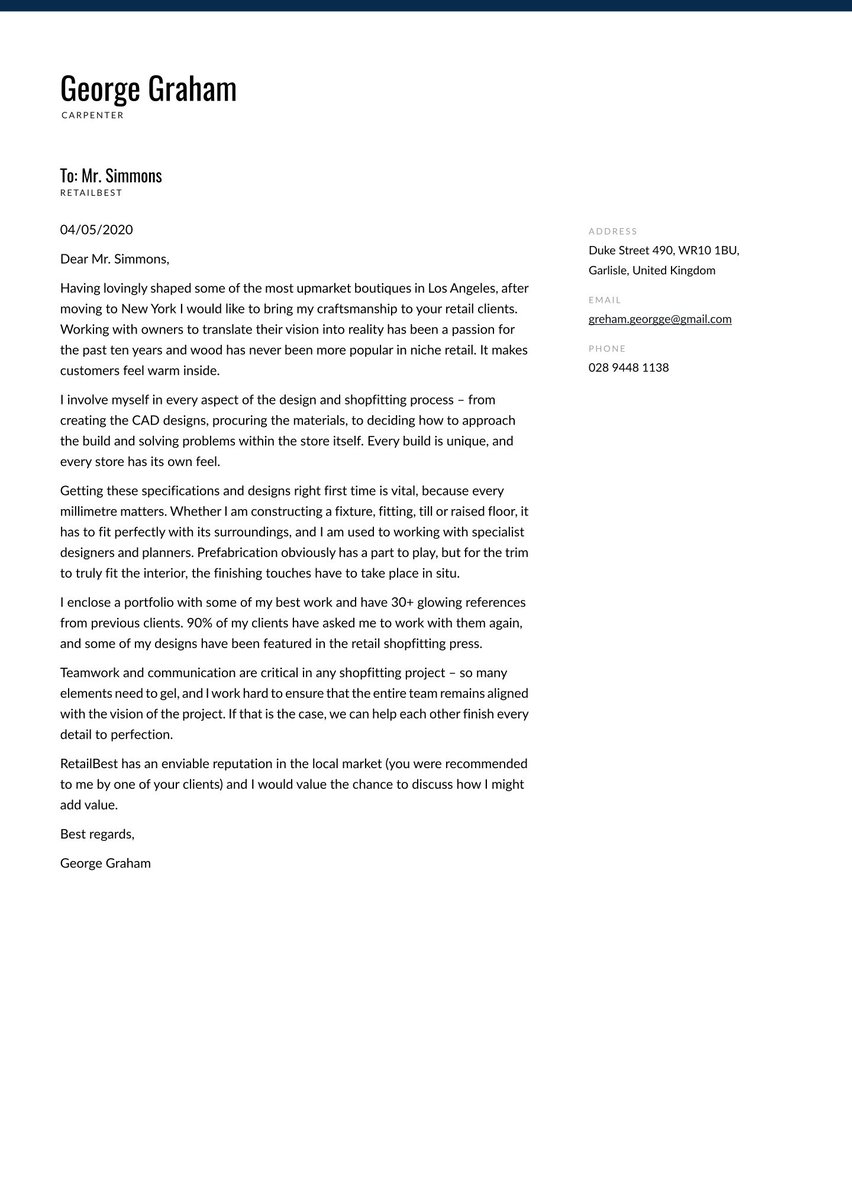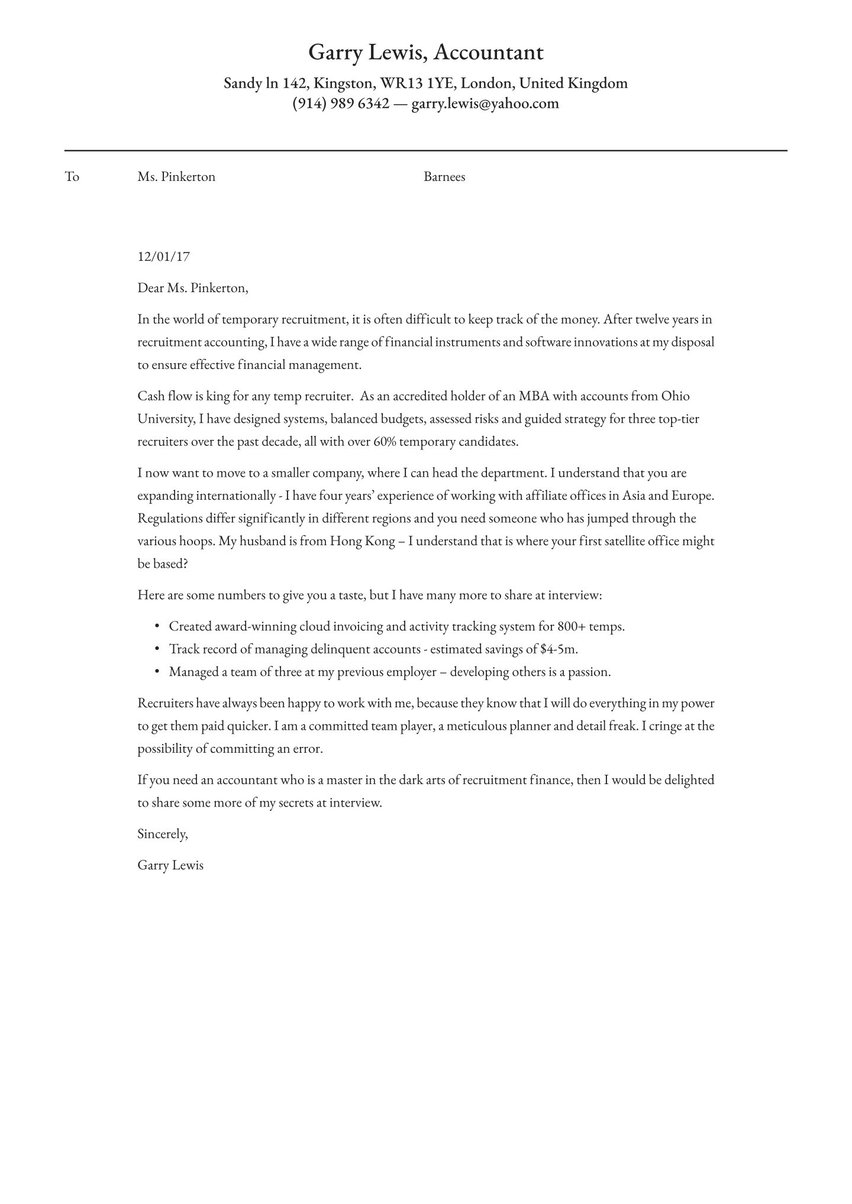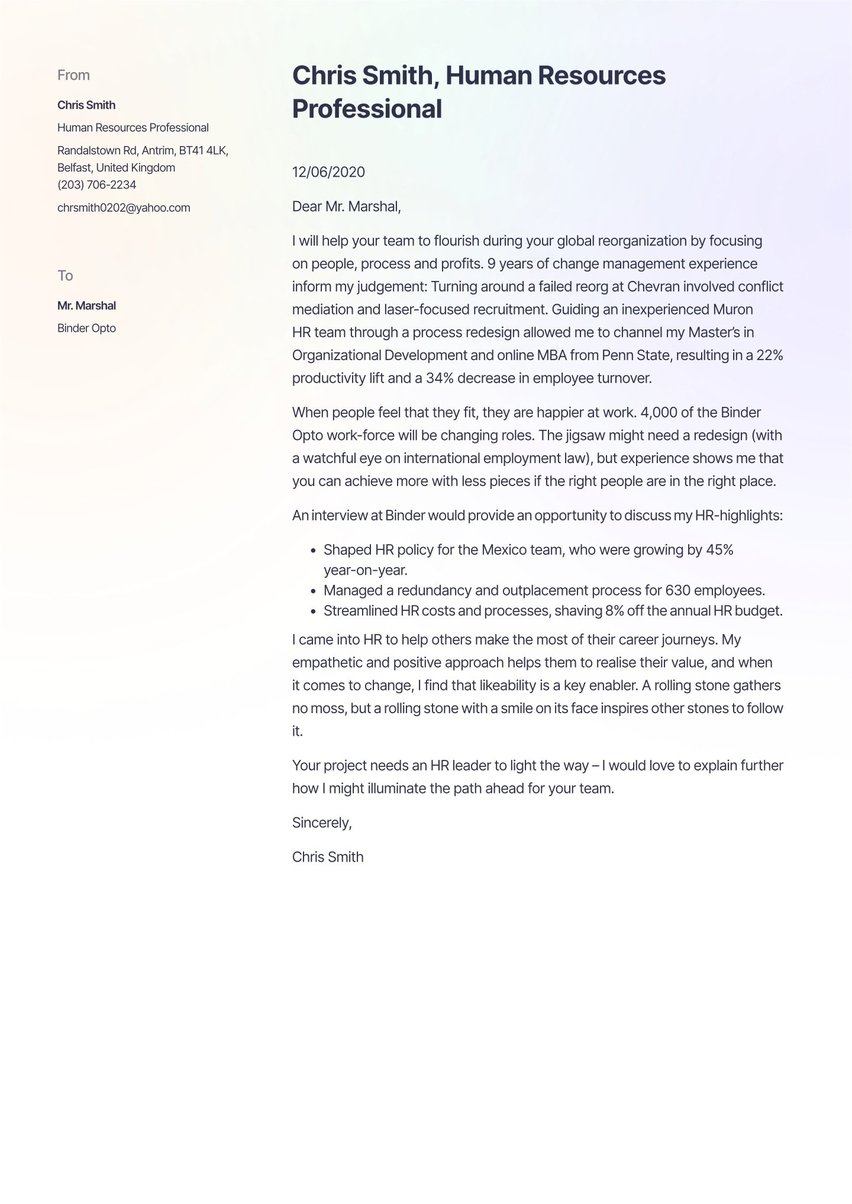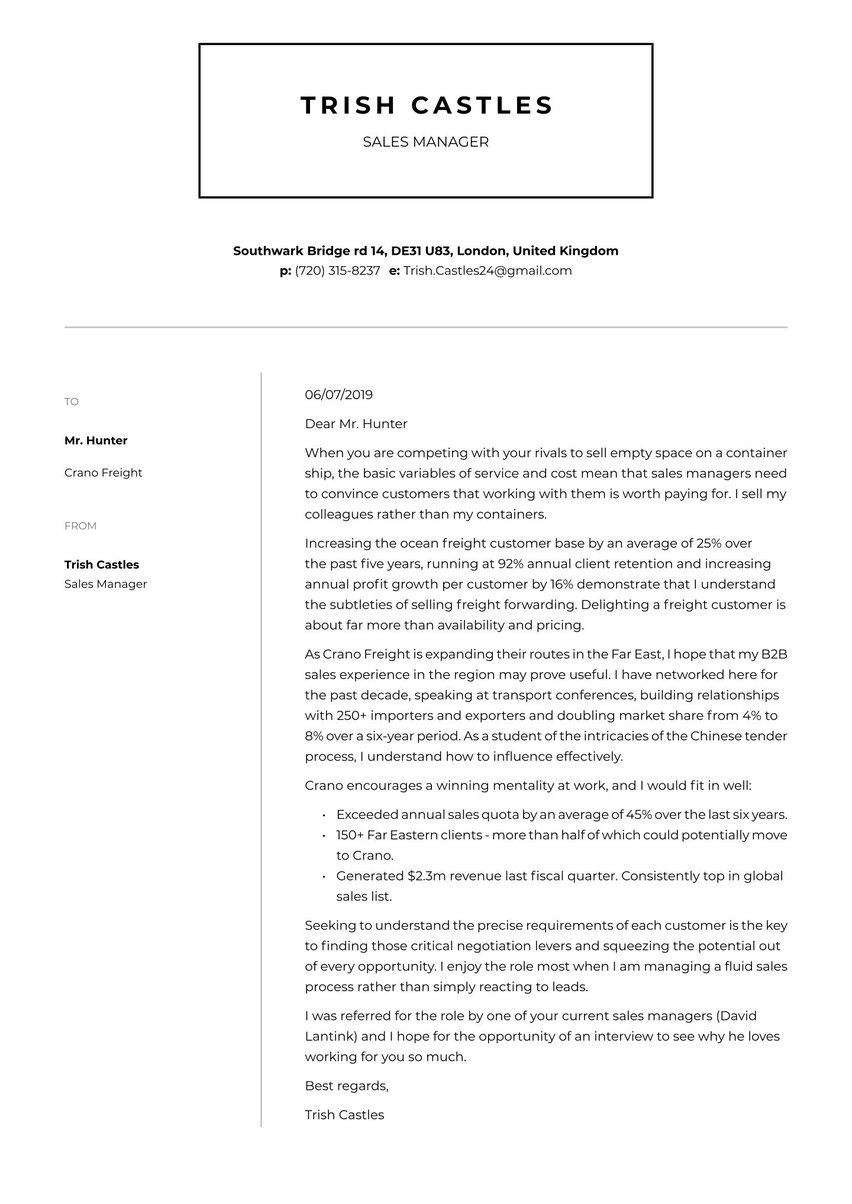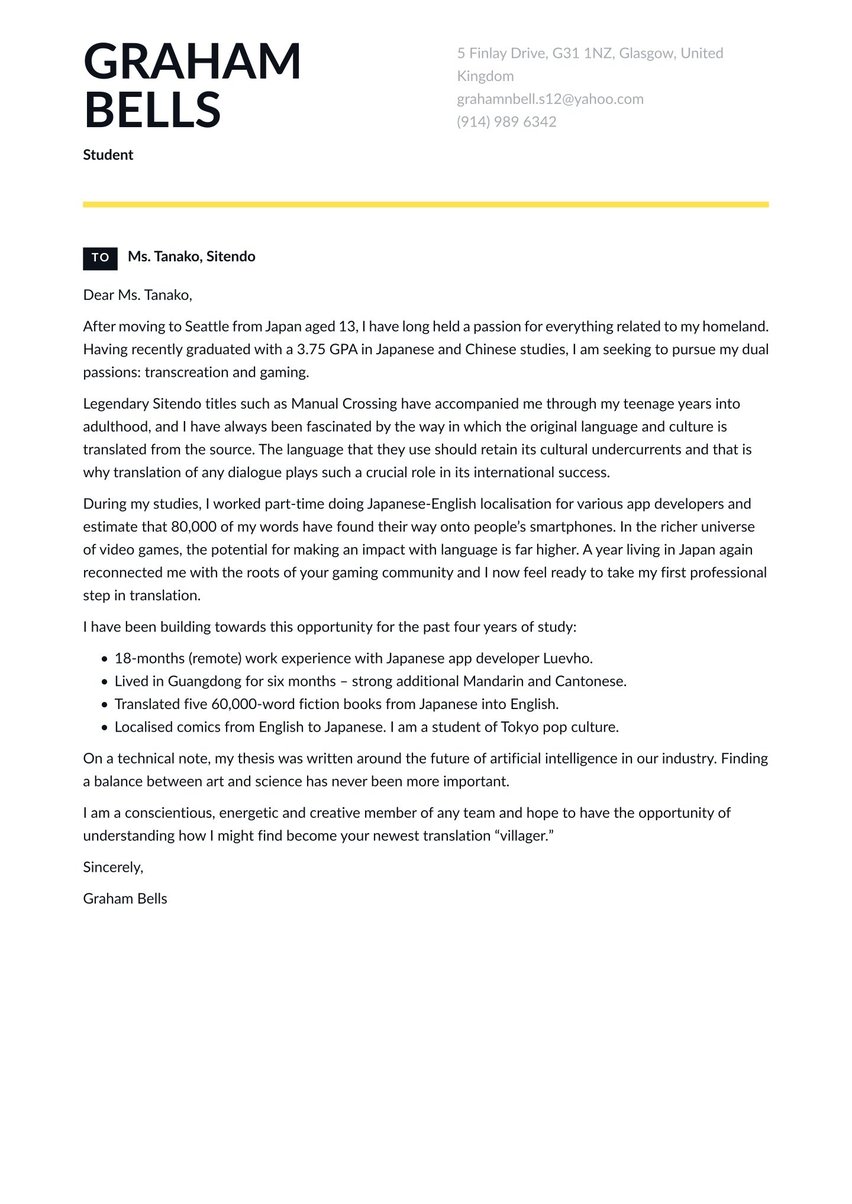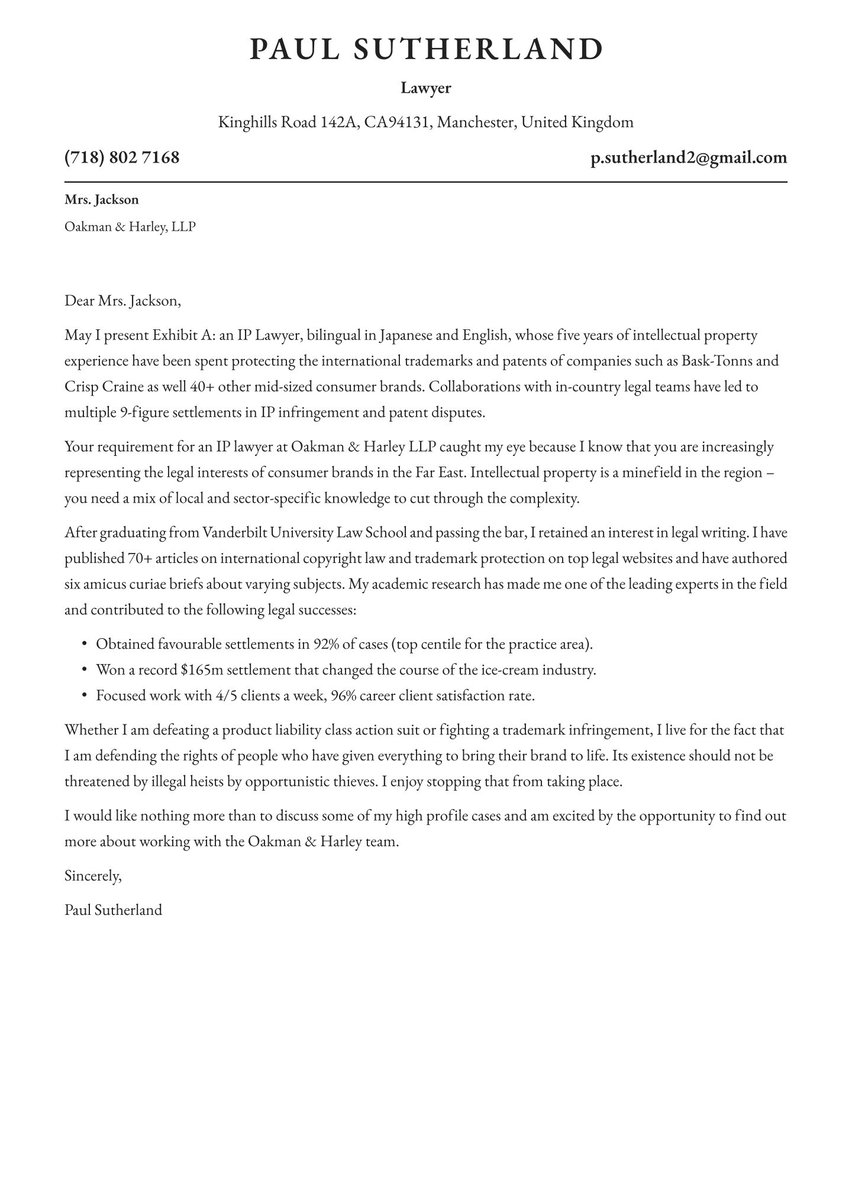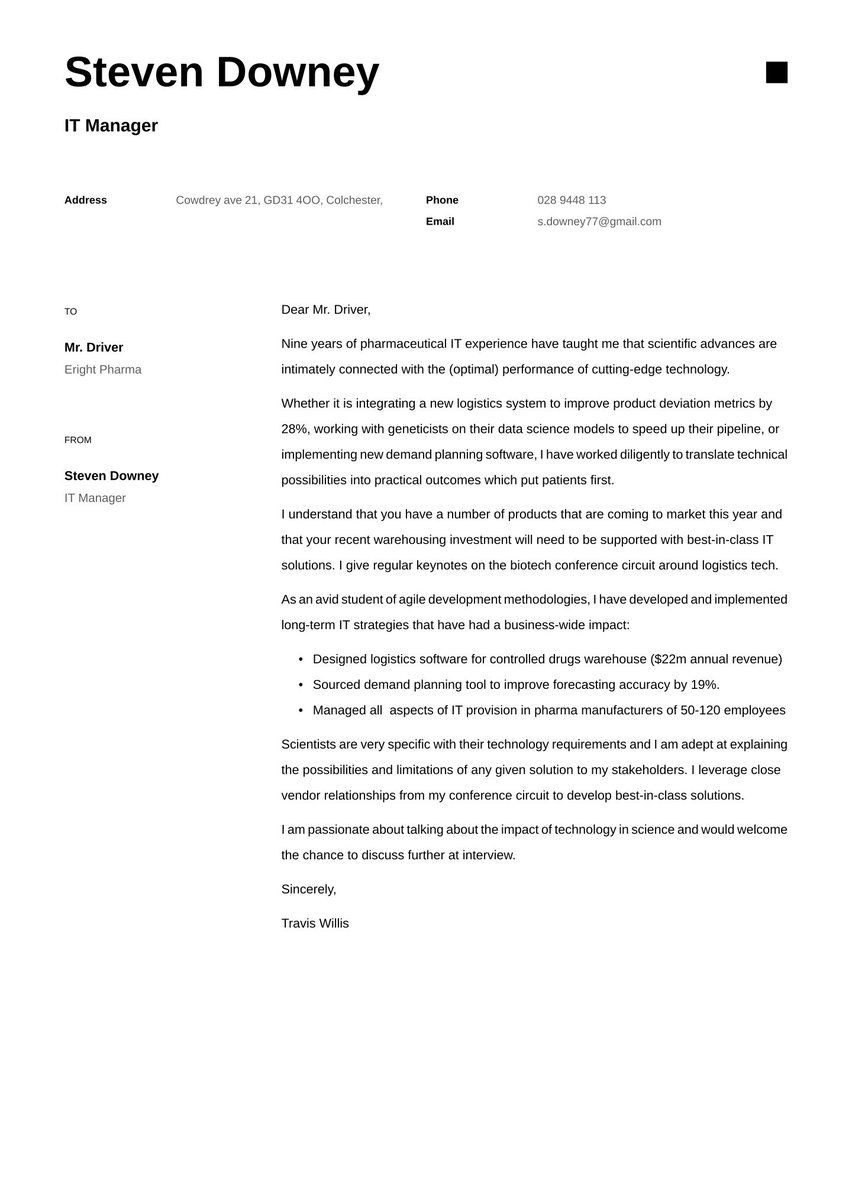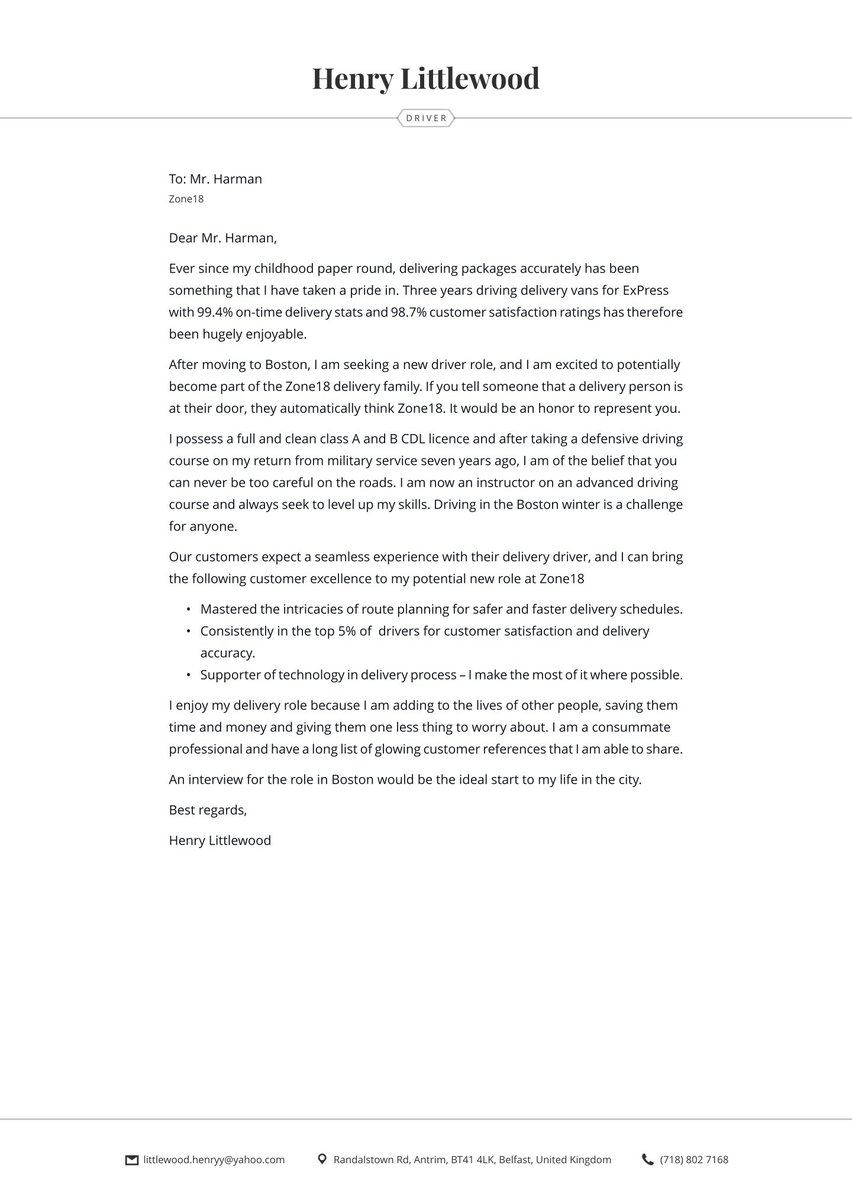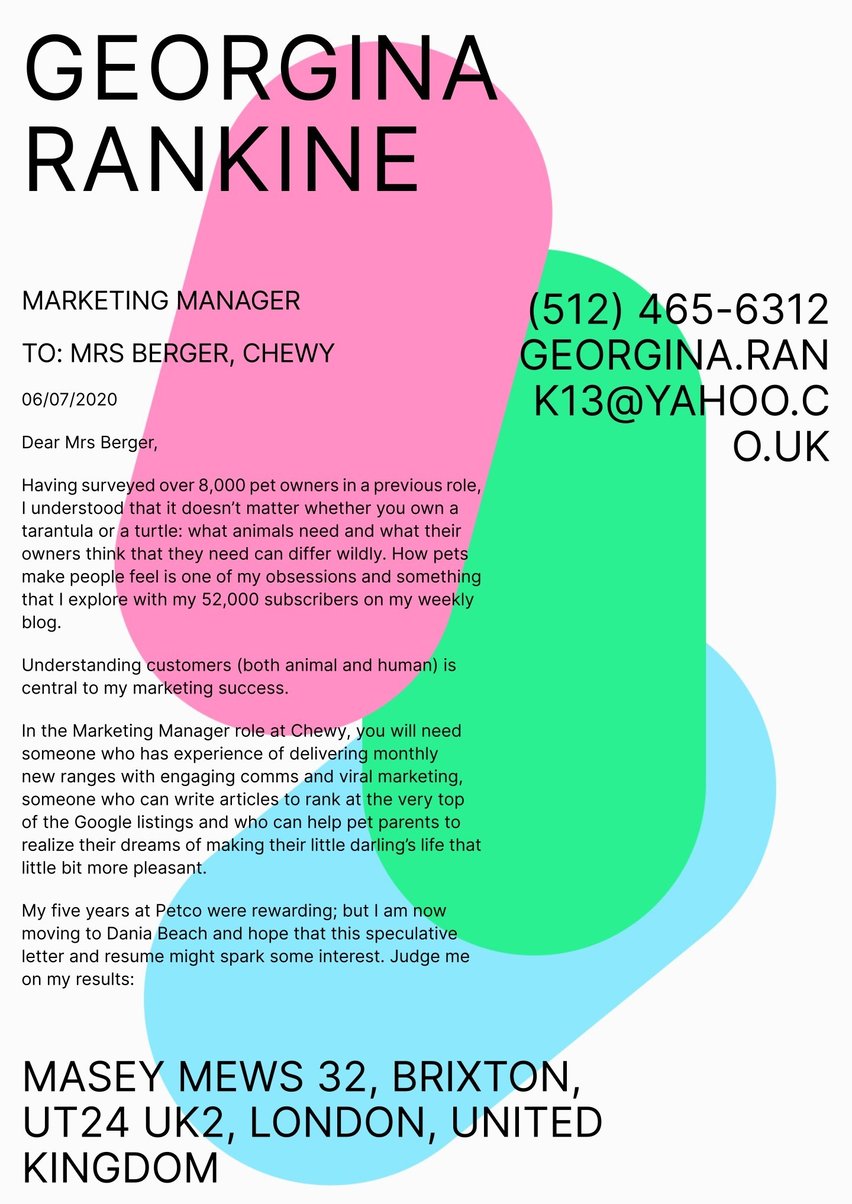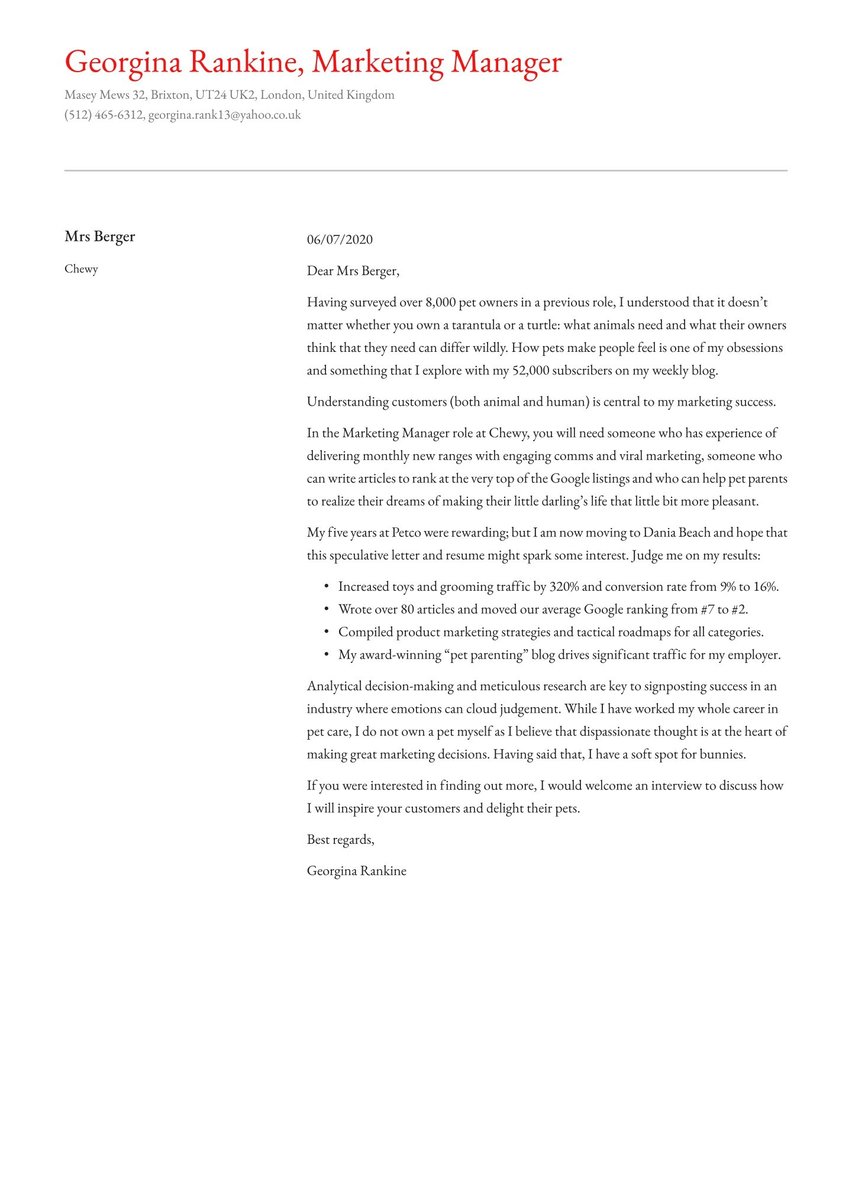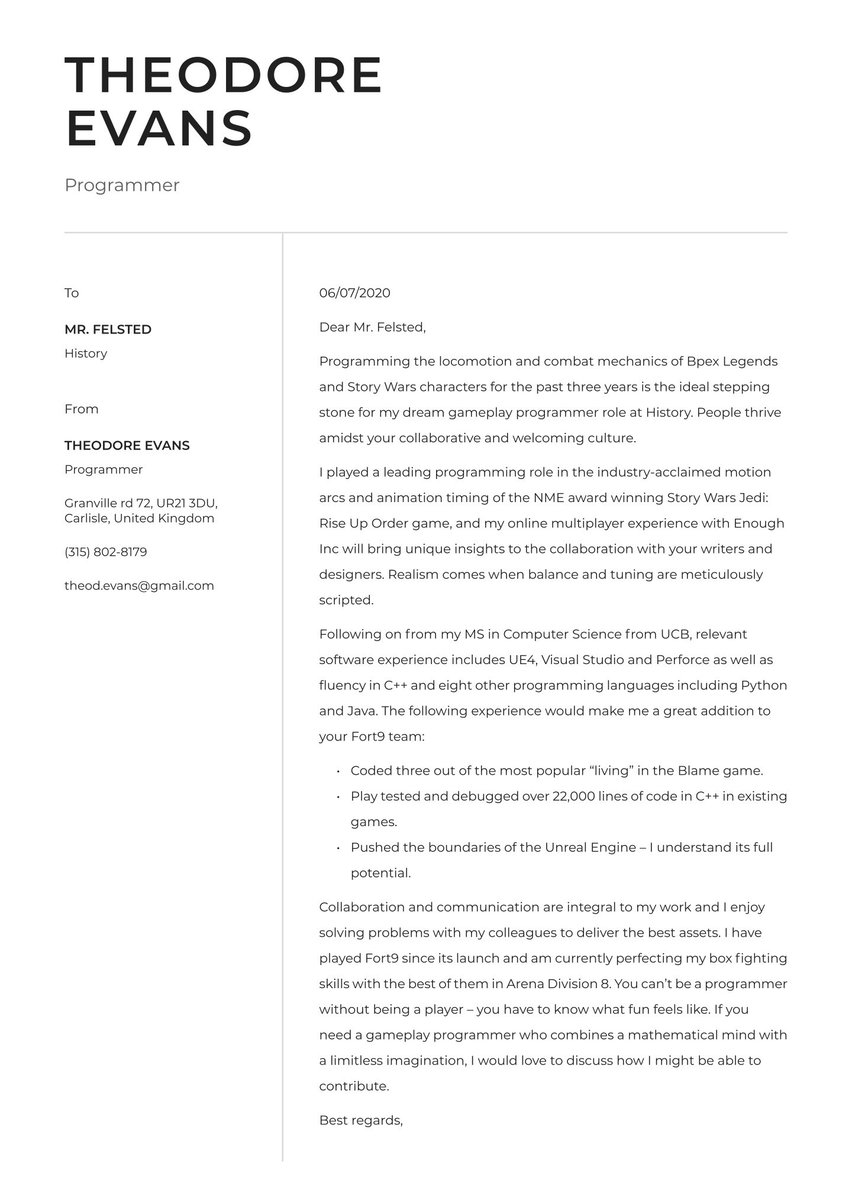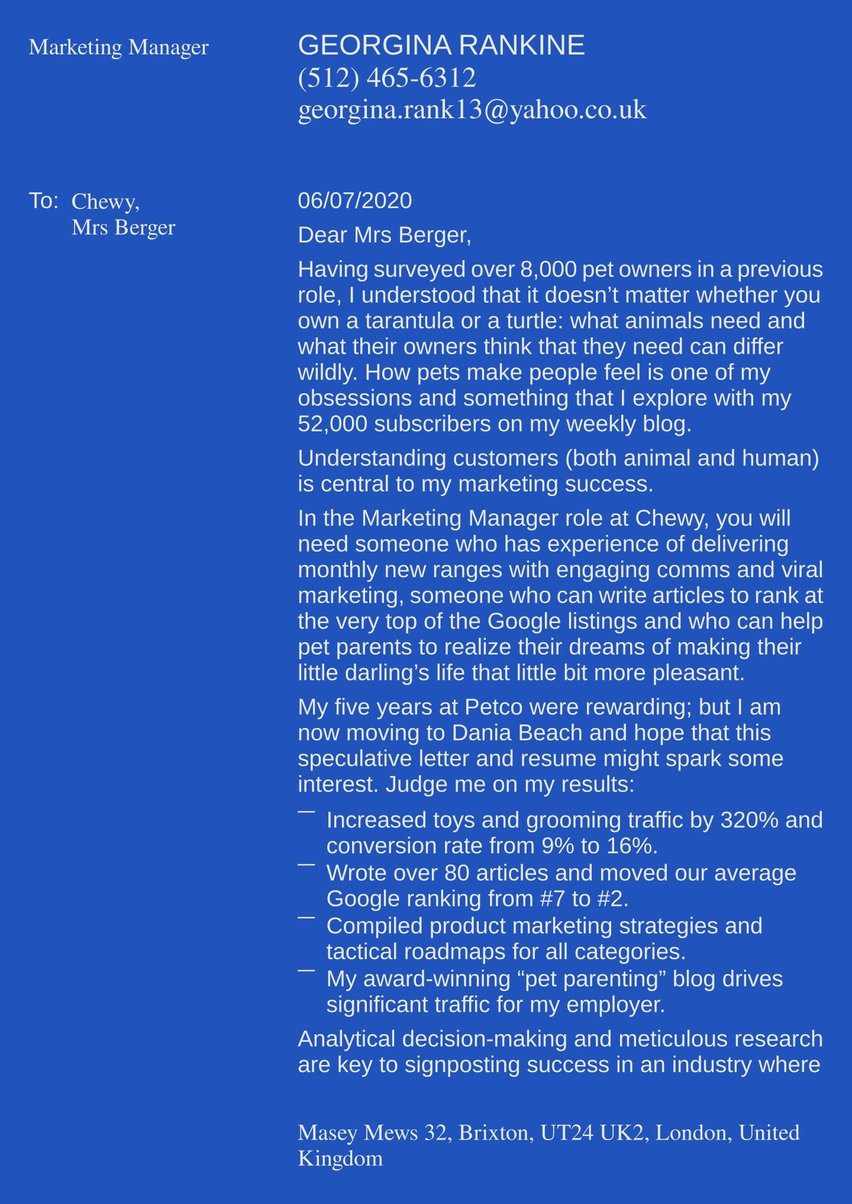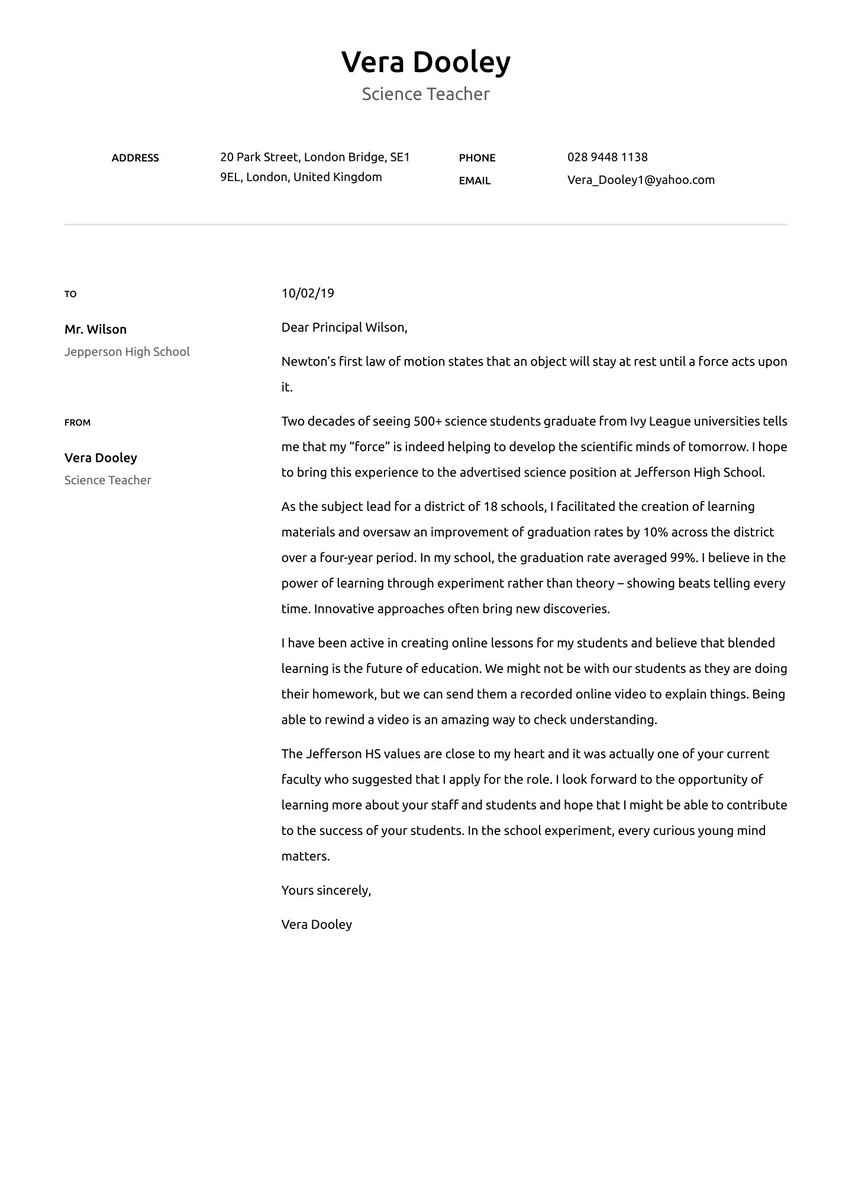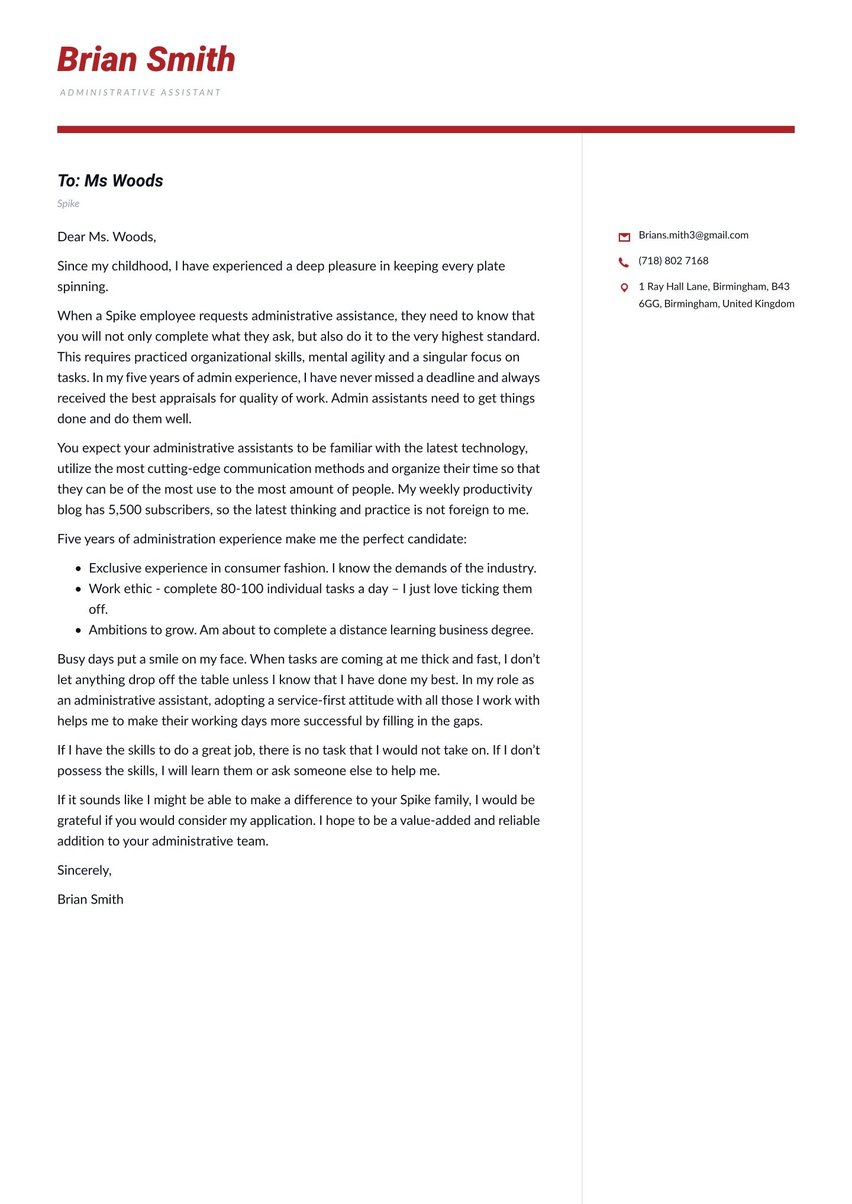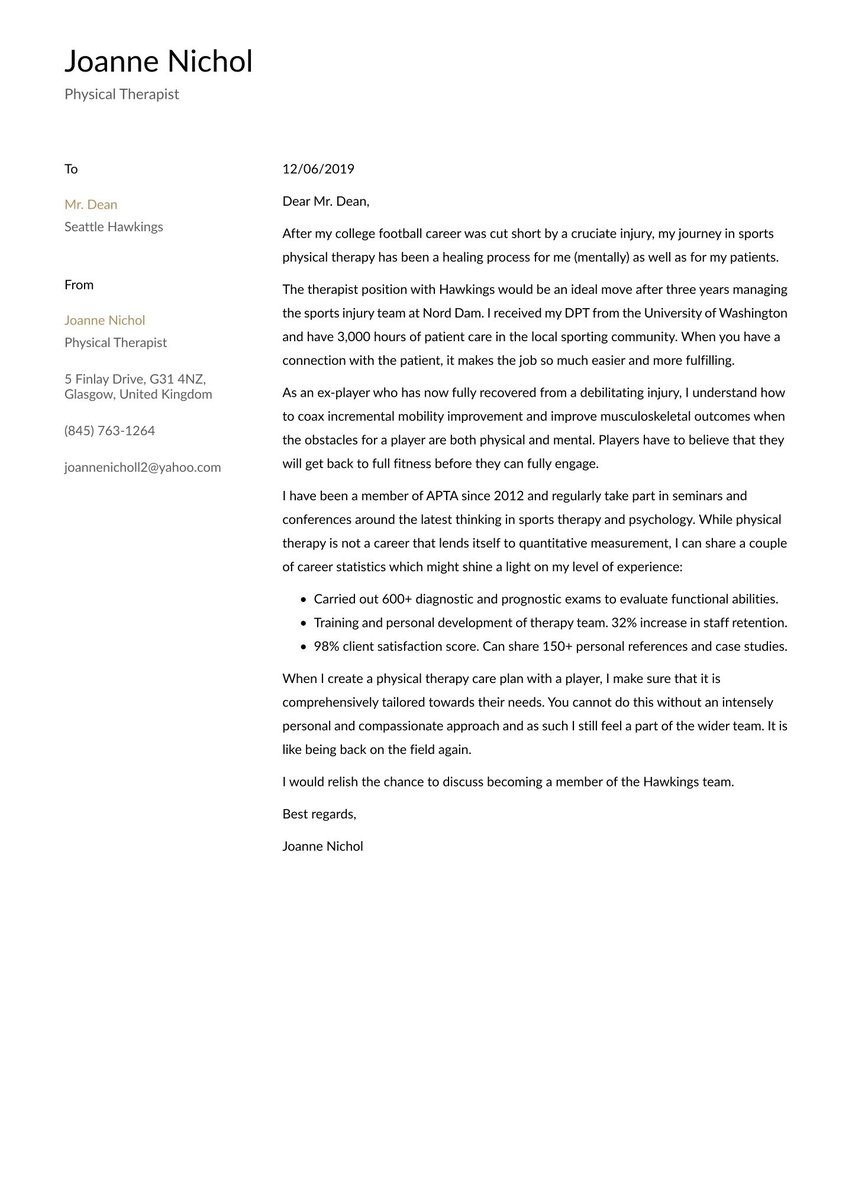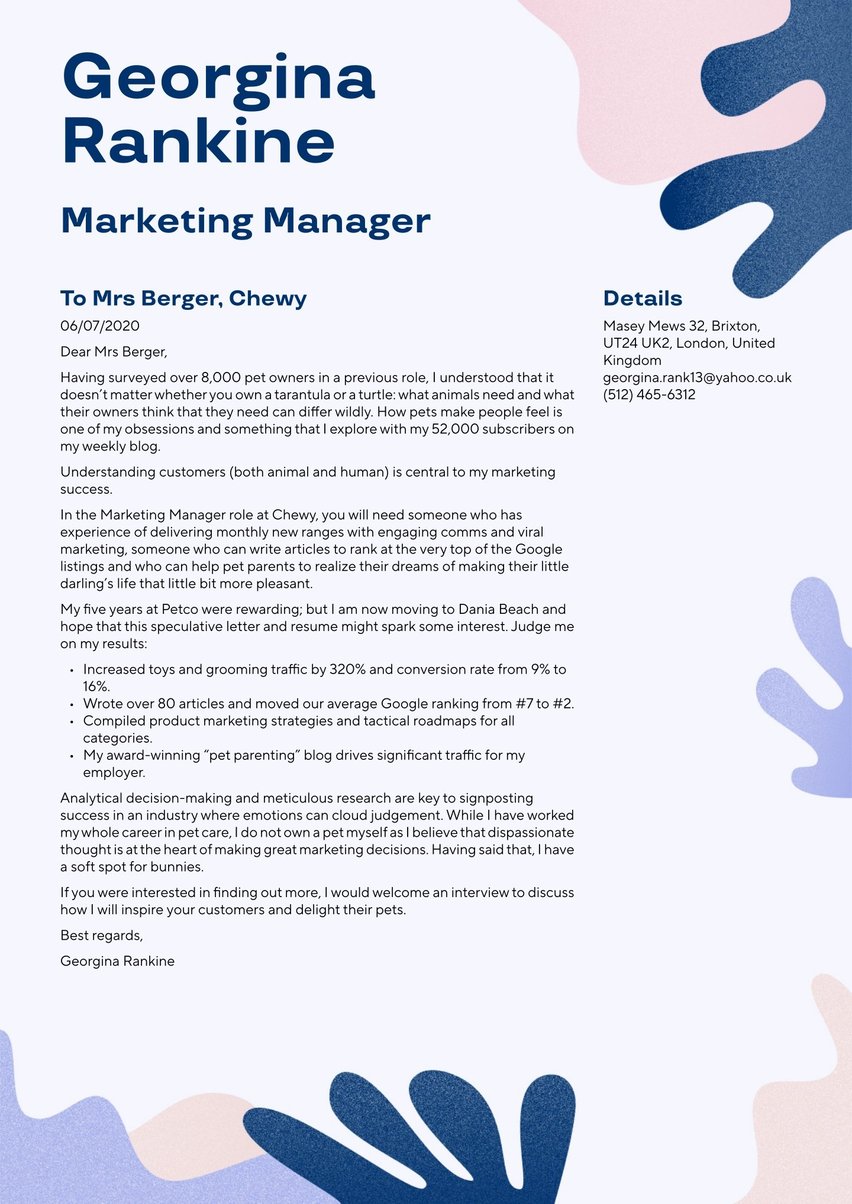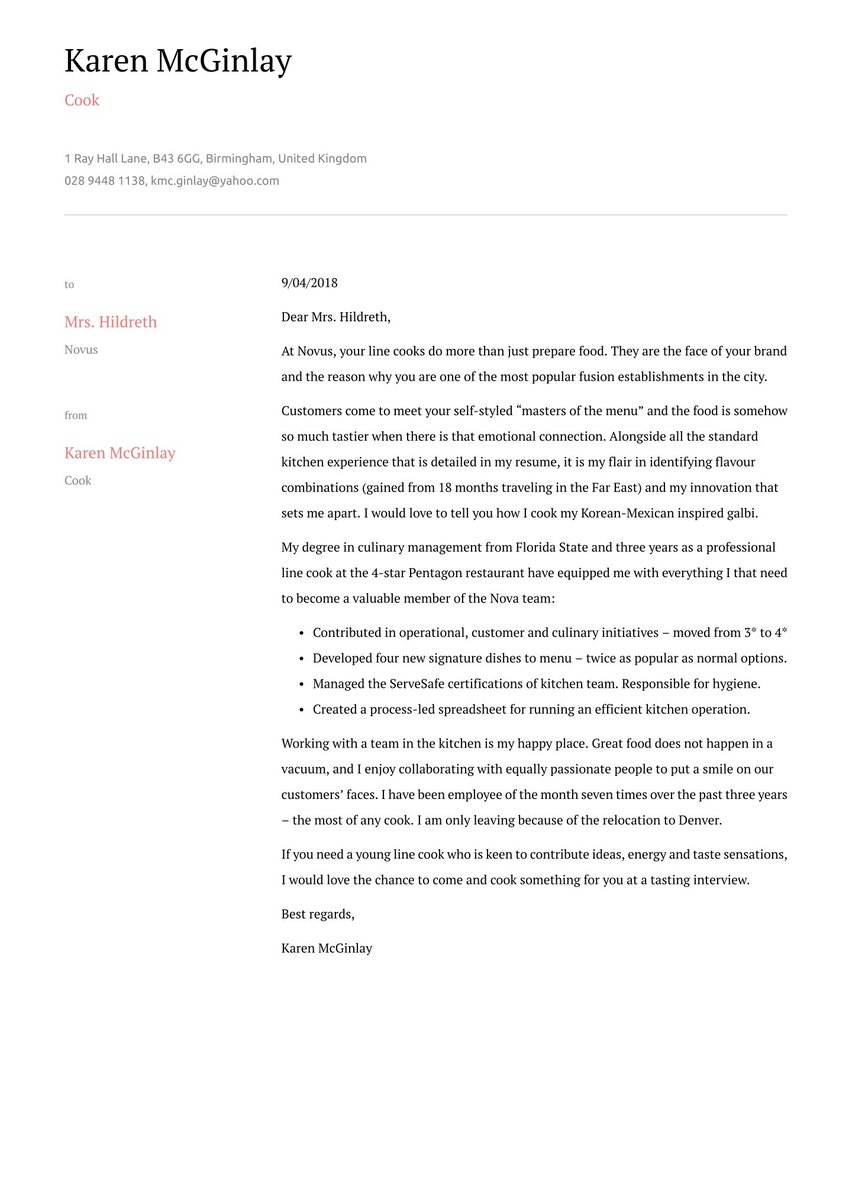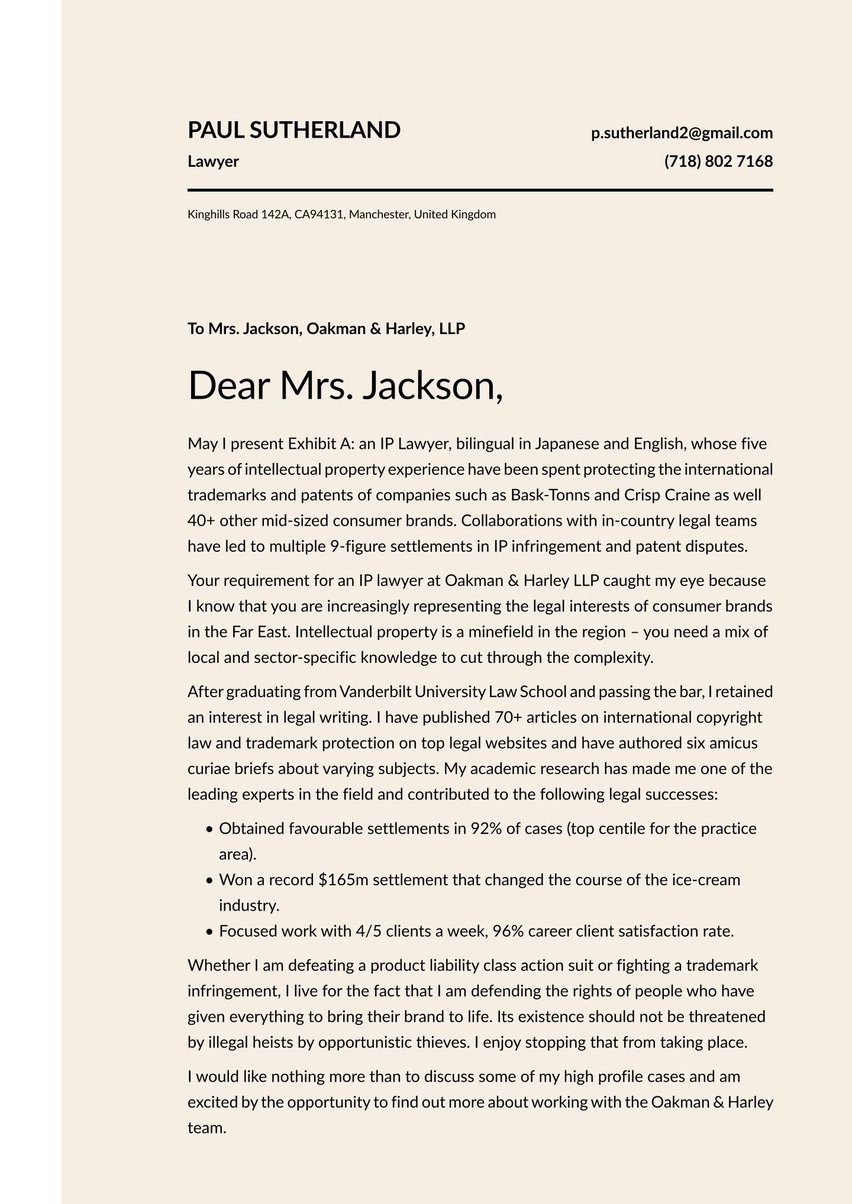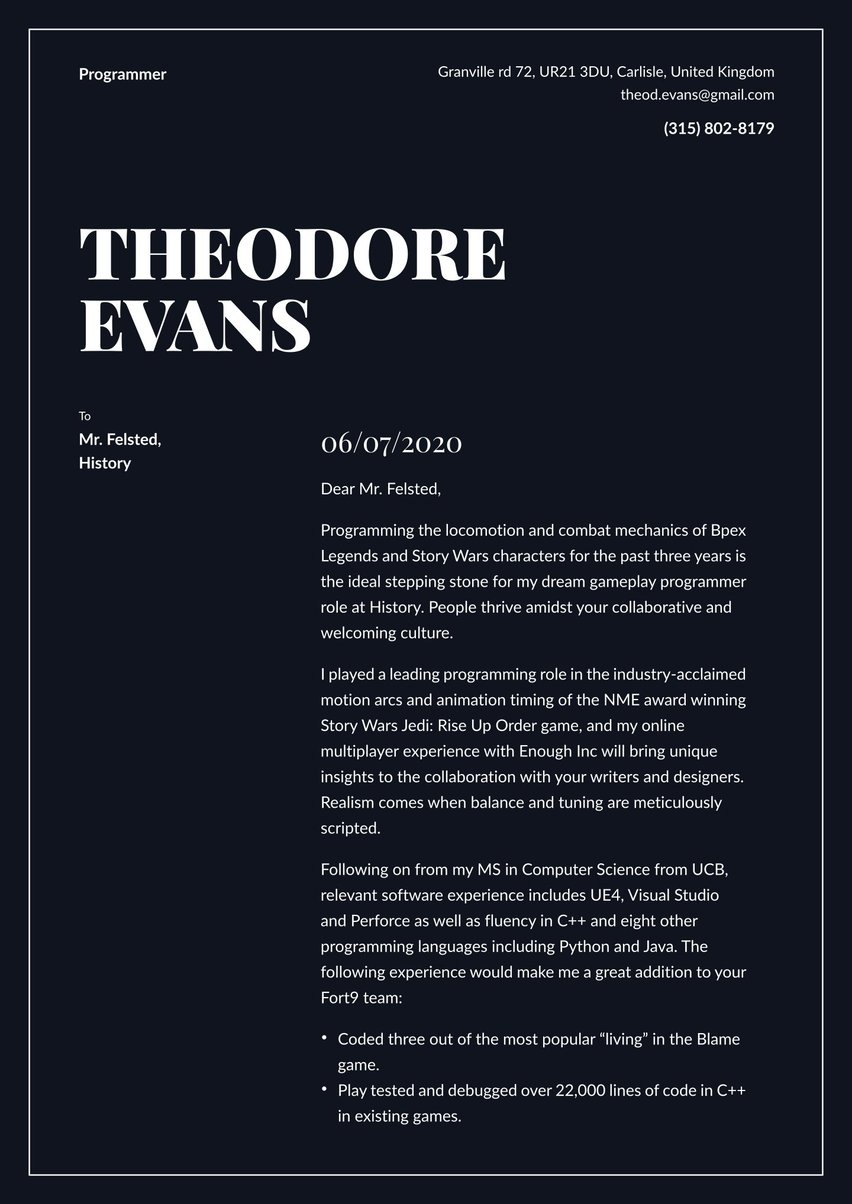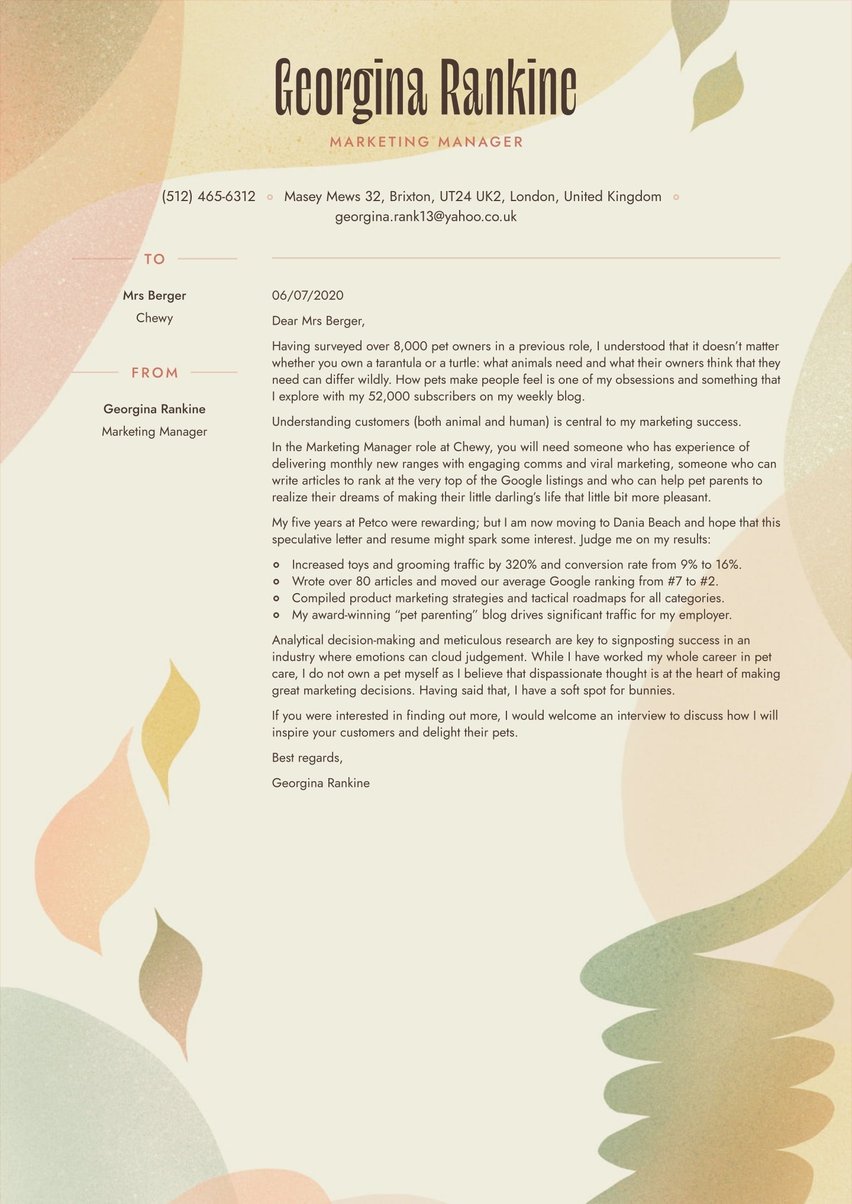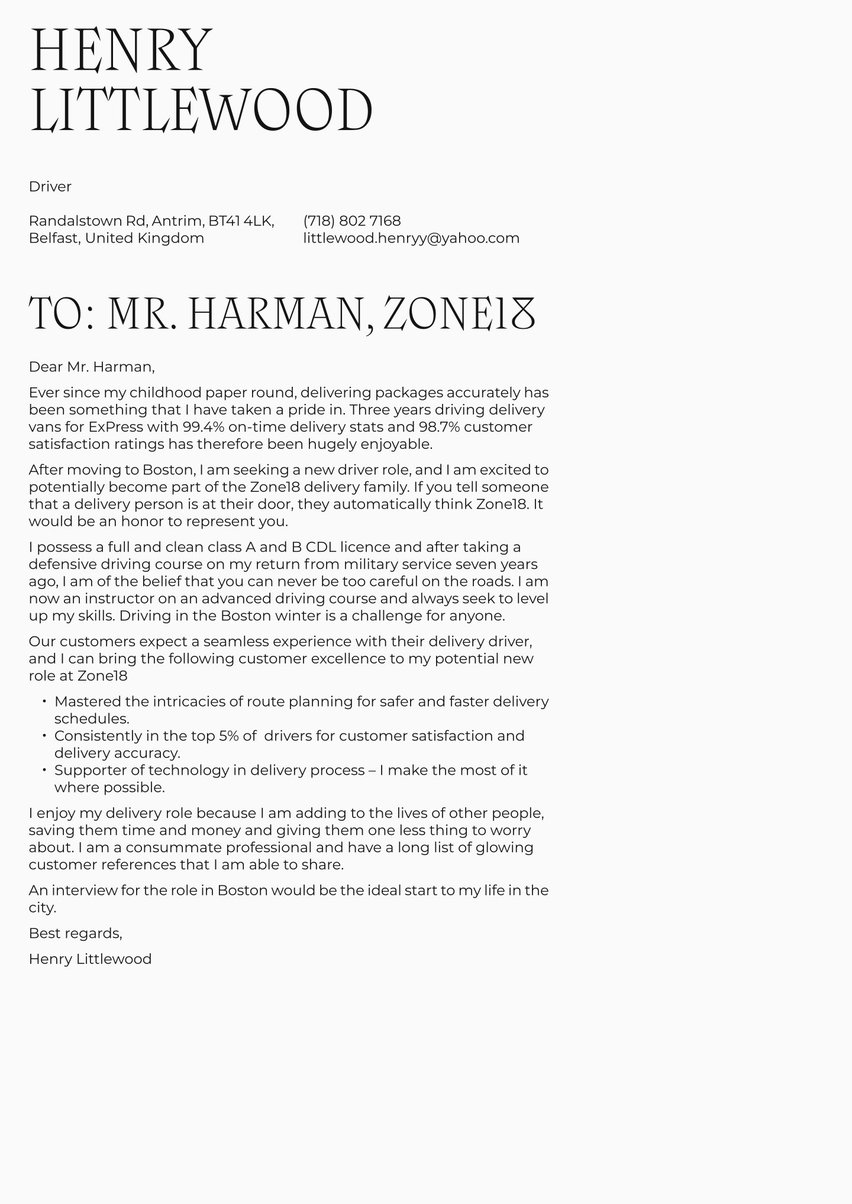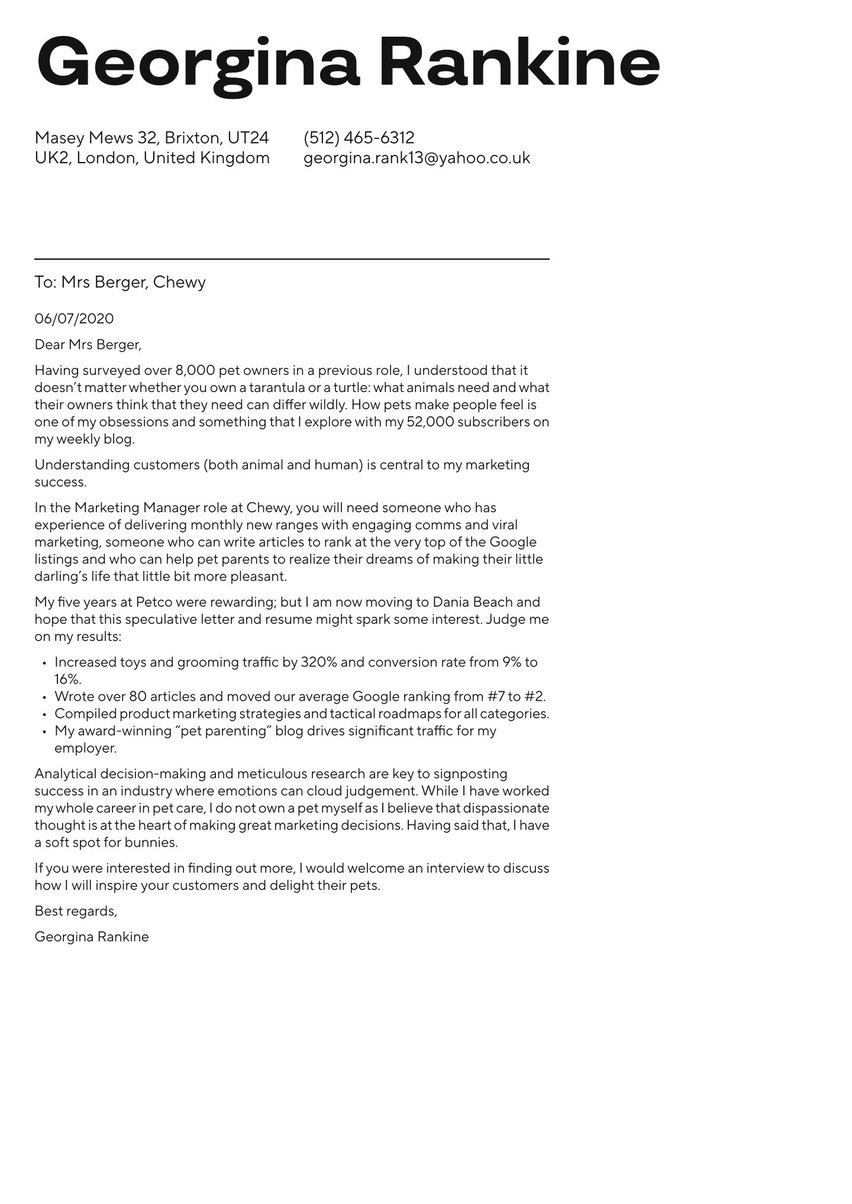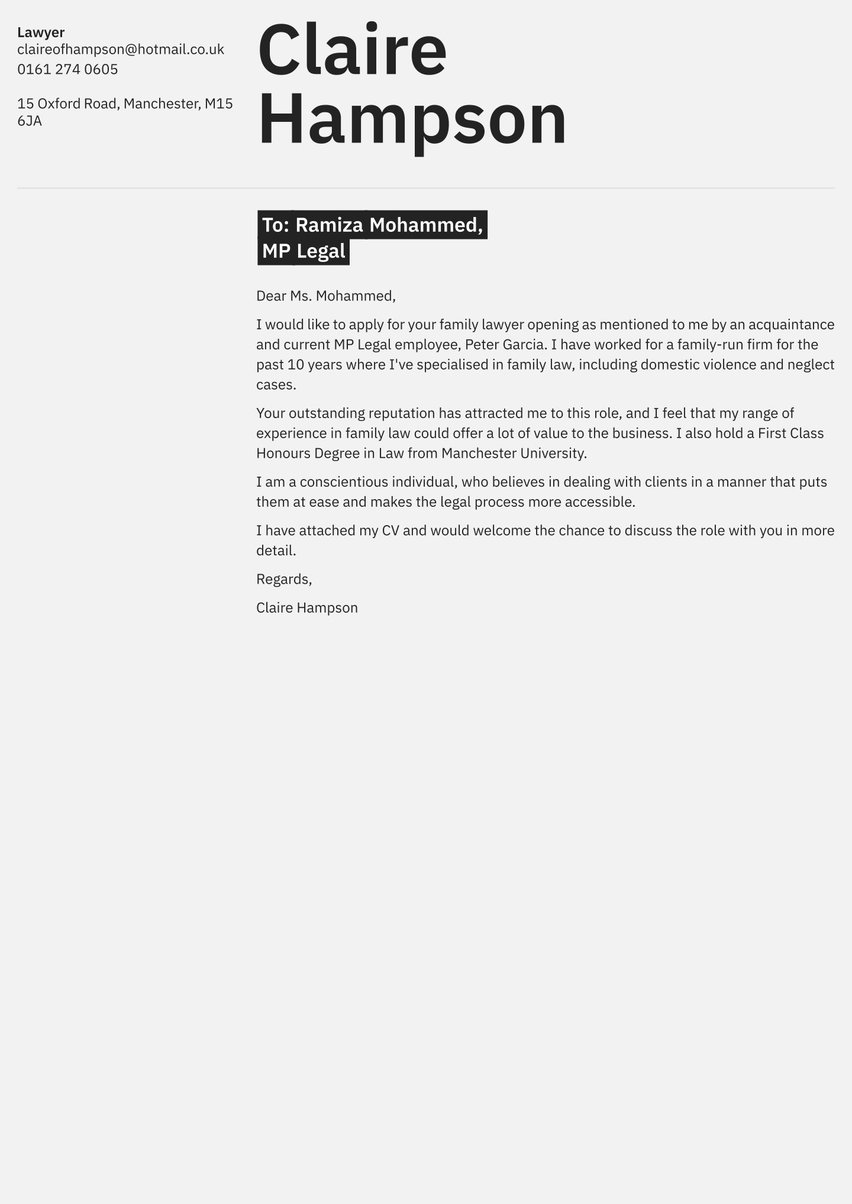Every good business analyst knows how important it is to interpret data and make the associated outcomes more effective. The job that a hiring manager has on their hands is not dissimilar when it comes to hiring the right business analyst for their organisation. That’s where a strong business analyst cover letter comes in. Your letter should outline not only your achievements, but your personality and motivation for the role.
If you’re a business analyst on the hunt for a new role, you’re in luck. The UK Commission for Employment and Skills actually determined in their Future of Work: Jobs and skills in 2030 report that demand would rise for data analyst skill sets in the private sector.
So how do you write a business analyst cover letter in just one page? That’s where Resume.io can help. We’ll show you how to get the most relevant parts of your business analyst journey onto one page. This guide will cover the following topics:
- How to choose the best cover letter structure
- How to maximise the effect of each cover letter paragraph
- What approach to take when writing your cover letter
- How to write a business analyst cover letter with no experience
Don’t forget, we also have a library of cover letter examples available for further inspiration.
You can head straight to our adaptable and professionally-researched cover letter templates to start writing. For further ideas on writing the perfect cover letter, here are some other useful cover letter examples:
Best format for a business analyst cover letter
Having a concise format for your business analyst cover letter is important. Not only does it help the hiring manager to follow your professional story, but it shows off your skills in separating and presenting information. Make sure your cover letter follows this format:
- The cover letter header
- The greeting / salutation
- The cover letter intro
- The middle paragraphs (body of the letter)
- The ending paragraph of your cover letter (conclusion and call-to-action)
This business analyst cover letter example shows you one way to make the most of the prescribed format for your role specifically:
Dear Ms. Meyer,
I apply with interest for the role of Business Analyst within the Anti Financial Crime Division at Solari Bank AG. Working in a similar position at Banco de Sabadell, I look forward to making the step up within a larger organization.
After completing my degree in Business Information Systems, an exciting opportunity presented itself when I was invited to join the FDM Group's prestigious postgraduate course. This experience equipped me with valuable skills in data analysis, problem identification, alongside cutting edge data science techniques.
Taking on the role of a graduate business analyst at Banco de Sabadell, my primary focus was to propose effective solutions for business continuity. Over my two-year tenure with the company, I consistently demonstrated my abilities as a confident team player, inspiring and motivating my colleagues to work harmoniously towards shared objectives. One of my proudest achievements was leading two teams to surpass KPIs, resulting in a significant 7.5% reduction in project costs.
My final year in this role involved a shift in duties and additional project management responsibilities. We performed gap analyses, assessments, and accuracy checks for name list screenings. The data collection and analysis of the last project I led was highlighted in our division's quarterly internal report for its excellence.
I consider myself an experienced professional in this field and would be enthusiastic to continue my expertise in this sector at Solari Bank. Please do not hesitate to contact me for further discussion of the role.
Yours Sincerely,
Charlotte Bagshaw
Cover letter header
The cover letter header, as the name suggests, is located right at the top of your cover letter document. The hiring company needs to be able to contact the candidate — that’s you — at a moment’s notice. Take away the extra step and make it easy for them!
Make sure your details are clearly visible at the top of the page. Not only is this practical, but it’s clear for anyone who reads your letter that this exceptional writing belongs to you.
You don't need to include your full home address in this section - you can share that at a later point when you get to the offer stage. Also, there is no need to share the inside address of the employer. You are likely sending your cover letter by email. not by post.
The best cover letters are short and sweet. Keep things to one page, and ideally no longer than 300 words. While you’ve undoubtedly put a lot of thought into this letter, it is always better to leave the hiring manager wanting more.
Cover letter greeting
As any good business analyst knows, the order in which you present your data matters. So make sure your cover letter starts in the right tone. We recommend using the formal greeting ‘Dear.’ Of course, this should be followed by the name of the person you are writing to.
Avoid using the generic ‘To whom it may concern; greeting. This can come off as cold and impersonal, or — in a worst case scenario — even lazy. If in doubt, use ‘Dear <company> team’ or ‘Dear hiring manager.’
Cover letter introduction
The cover letter introduction should set the scene for your professional story. Clarify why you are writing to the hiring manager and why you believe you are the best person for the job.
Of course this is what our entire cover letter endeavours to do. So in this first instance, think of the cover letter introduction as the short paragraph taster for what you are about to expand on in the rest of the letter. You have just a couple of sentences to hook the hiring manager and convince them that your letter is worth reading.
So, what makes your story unique? Whatever it is, this section of your cover letter needs to concisely include the most impressive points. Have a look at the job description and make a good call.
Dear Ms. Meyer,
I apply with interest for the role of Business Analyst within the Anti Financial Crime Division at Solari Bank AG. Working in a similar position at Banco de Sabadell, I look forward to making the step up within a larger organization.
Cover letter middle part (body)
Now that your reader is hungry for more of your business analyst cover letter, it’s time to unpack the teaser that you created in the introduction. The body should explain not only your most impressive achievements, but how you arrived to possess the skills that you have mastered.
Go beyond the job advertisement and really try to understand the skills your employer is looking for. You can choose the achievements you opt to highlight based on what is best going to demonstrate that you align with the company’s needs and values. In a way, your cover letter is your first opportunity to prove your ability to go past surface-level conclusions and dig deep into the facts.
Data and figures are a big part of the language of business analysts, so don’t be afraid to quantify your short achievement case studies. Did you help to keep business costs in your sector down? Tell your hiring manager how much you saved the company. If you have enough impressive accomplishments to throw in, then you can turn them into a bullet point list.
After completing my degree in Business Information Systems, an exciting opportunity presented itself when I was invited to join the FDM Group's prestigious postgraduate course. This experience equipped me with valuable skills in data analysis, problem identification, alongside cutting edge data science techniques.
Taking on the role of a graduate business analyst at Banco de Sabadell, my primary focus was to propose effective solutions for business continuity. Over my two-year tenure with the company, I consistently demonstrated my abilities as a confident team player, inspiring and motivating my colleagues to work harmoniously towards shared objectives. One of my proudest achievements was leading two teams to surpass KPIs, resulting in a significant 7.5% reduction in project costs.
My final year in this role involved a shift in duties and additional project management responsibilities. We performed gap analyses, assessments, and accuracy checks for name list screenings. The data collection and analysis of the last project I led was highlighted in our division's quarterly internal report for its excellence.
How to close a business analyst cover letter (conclusion and sign-off)
A business analyst uses data to arrive at an informed conclusion. You want to lead the hiring manager to a clear conclusion with your business analyst cover letter, too. Now is the time to tie together the case that you have presented about why you are the best candidate for this role.
Reaffirm why you think you would be an excellent fit for the company. Remind the employer not only what they can do for you, but of your own value as a company asset. Is there something specific about the role that you feel you can personally respond to? Remind the hiring manager in the last paragraph of your cover letter.cover
Your final line should provide a firm bookend to the letter. A polite invitation to continue the discussion is a great option. Who knows? If your business analyst cover letter is convincing enough, this may be the final nudge the hiring manager needed to give you a call.
Finally, when signing off your cover letter, the preferred lines to use are ‘Best regards’ or ‘Yours sincerely.’
I consider myself an experienced professional in this field and would be enthusiastic to continue my expertise in this sector at Solari Bank. Please do not hesitate to contact me for further discussion of the role.
Yours Sincerely,
Charlotte Bagshaw
Business analyst cover letter with no experience
No previous business analyst experience? No problem. Whether you’re transitioning careers or are a fresh graduate, there are some simple tips you can follow. These will make your business analyst cover letter more compelling. The beauty of a strong cover letter is that it can fill in the gaps where your CV is lacking. After all, there was a time when today’s most accomplished business analysts had a blank CV, too.
You have a clear idea of the skills and mindset that are needed for a good business analyst. What other professional experience do you have that clearly demonstrates these skills? Try to focus on including strong examples that illustrate these skills. Break them down into a decision you made, the action you took, and the outcome it had in your writing. Even if you have no previous professional experience, you can use this technique to show off the skills you’ve acquired on a previous non-professional project. Get creative!
If you are applying for your first job, don’t be afraid to lean on traits demonstrated from any extracurricular activities you’ve taken on over the years. You should know by now, it’s all about the way you frame the data!
A human might not even get the chance to read your cover letter if you don’t pass the Applicant Tracking System (ATS).
ATS are algorithms that employers use to scan your CV or cover letter. Usually they detect the presence of pertinent keywords. Read the job advertisement carefully for clues to what those keywords may be, and remember to place them where appropriate in your CV and cover letter!
Key takeaways
- Make sure your business analyst cover letter story sets the scene by illustrating what type of professional you are today and how you got there.
- Show off your problem-solving attitude: present yourself as the solution to the company’s current needs.
- Pick examples that correspond to the skills you’ll need to bring to the job based on your research.
- Support your examples of analytical successes by quantifying the benefits they brought.

